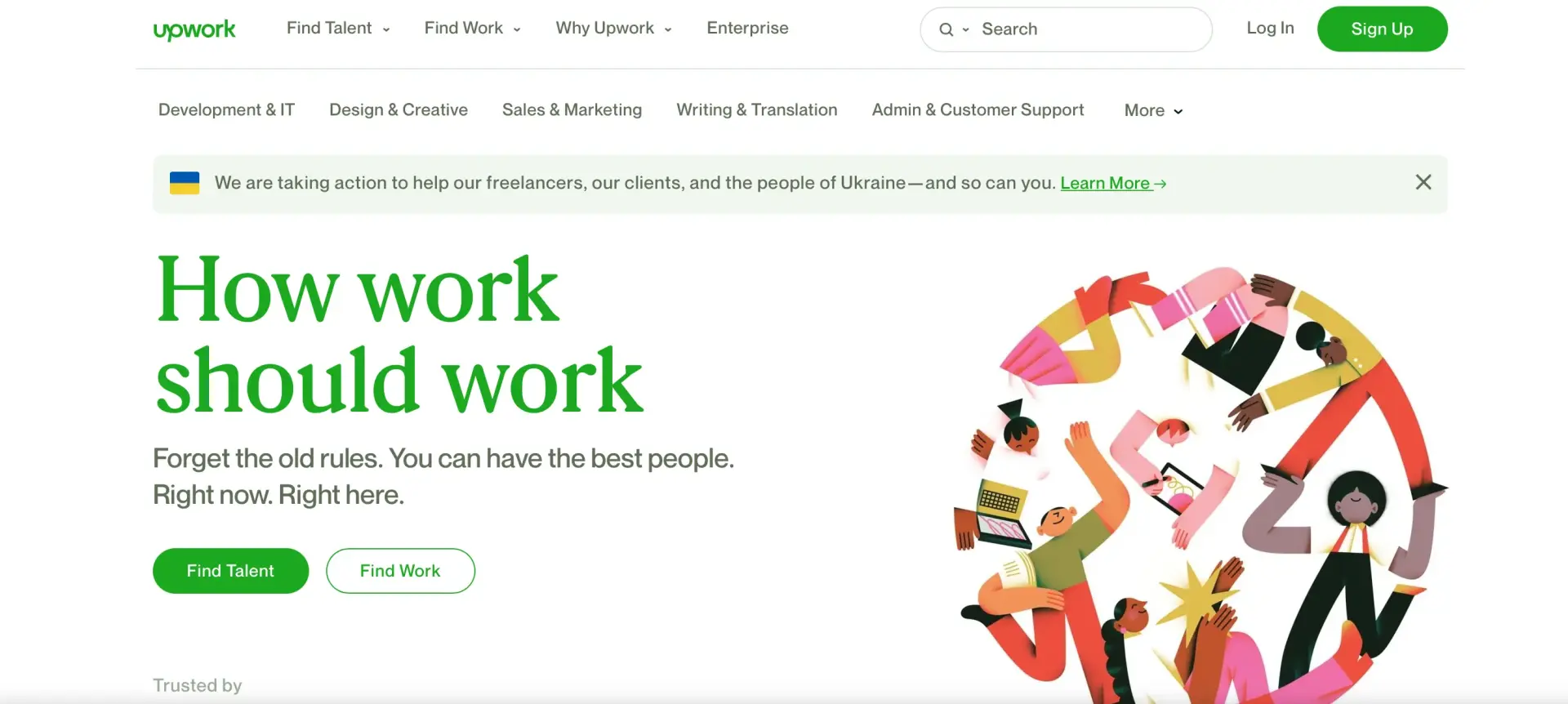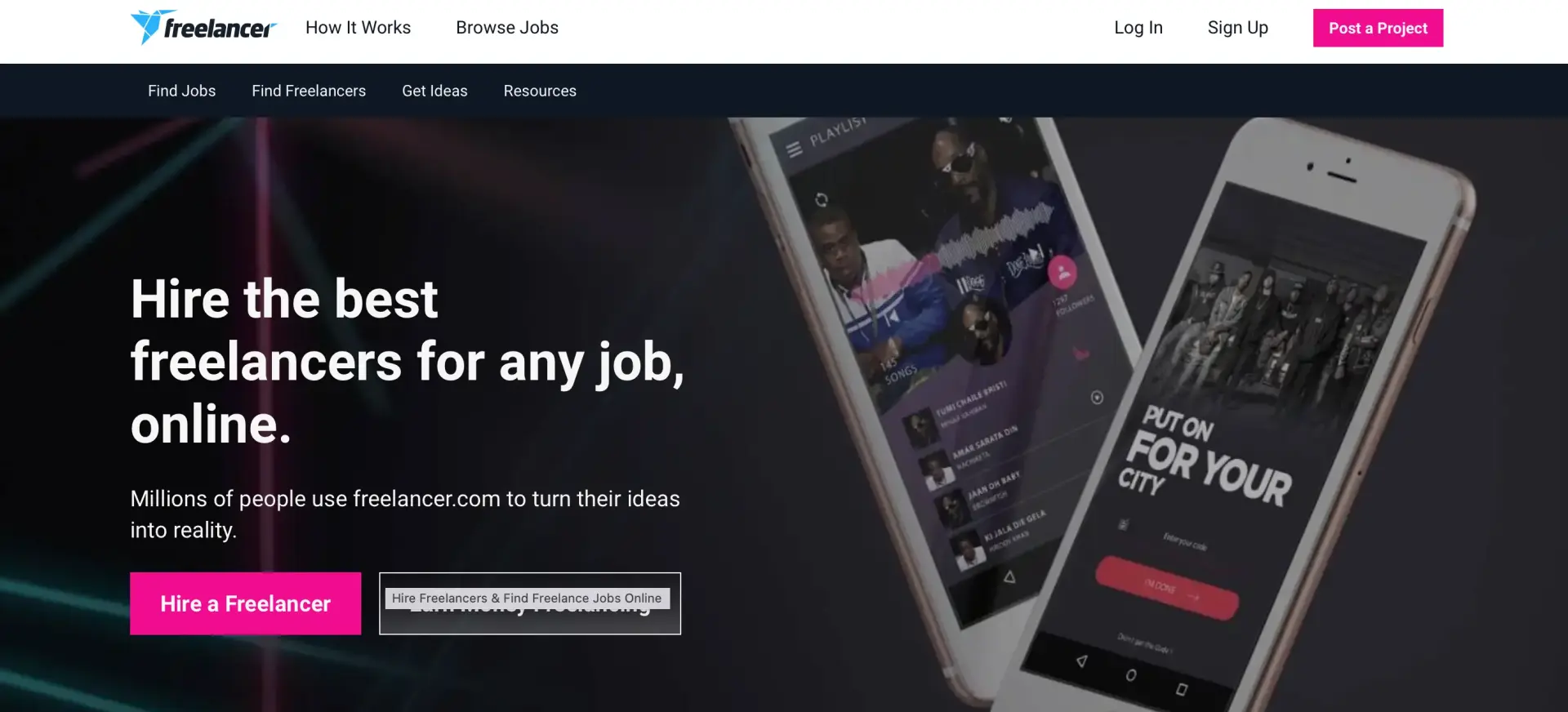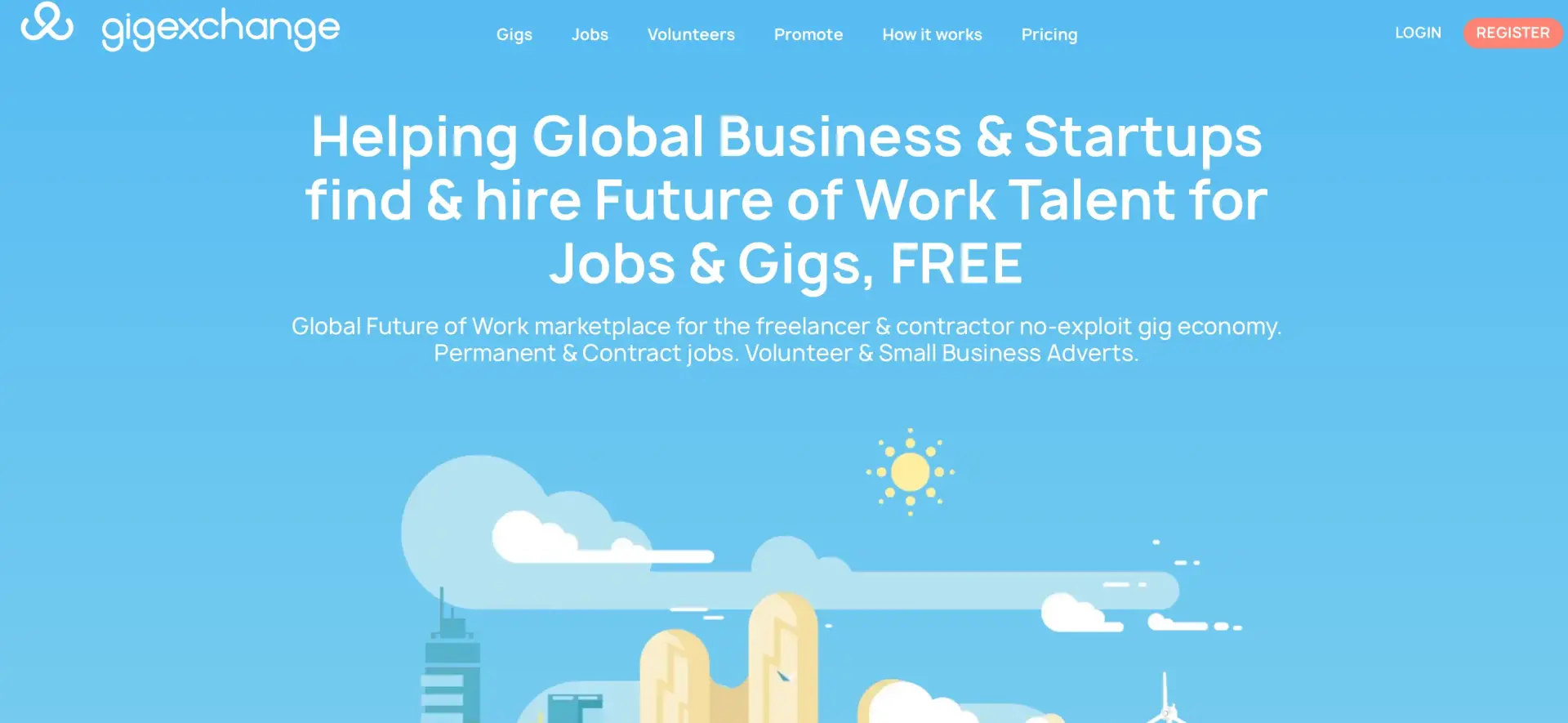- Writing Content Creation
- Software development
- Graphic design
- Copywriter
- Software engineer/web developer
- Digital marketing consultant
- Social media manager
- SEO specialist
- Media buyer
- Photographer/videographer
- Web designer
- JavaScript, CSS, and HTML. Web development is still one of the most in-demand jobs in the freelancing markets
- Web App Development
- WordPress Design & Development
- Project Management
- Cloud Computing
- Data Science & Analysis
- Administrative Assistance
- Consulting
- Photography & Videography
- Social Media Manager & Community Manager
- Virtual Assistant

Ultimate Guide to Freelancing in Italy in 2026
What is a Freelancer in Italy?
A freelancer is an independent worker in Italy who earns a living working for different businesses or organisations on a flexible per-job or per-task basis, typically for short-term work.
The main benefit of being a freelancer in Italy is the flexibility it offers. You have the freedom to choose the projects you want to work on and the hours you work. Theres no need to work long hours to meet someone elses demands or to put in long hours just to generate billable time. You are your own boss and can structure your working day from the comfort of your own home or workspace. Another benefit of being a freelancer in Italy is the ability to take advantage of the country’s tax laws. Italy’s tax system is based on a flat rate, meaning that those earning more pay proportionally less in tax than those earning less. This can be a huge advantage for self-employed freelancers, who in many cases pay no more than 20% of their income in tax. The work-life balance provided by living in Italy is great. Although the country is known for its hectic lifestyle, there is still a generous amount of downtime available. Even in the middle of summer, when some businesses are at their busiest, there is still time to enjoy Italy’s stunning coastline, take a day off to walk around the city or simply relax in a wine garden. What’s more, because of the countrys traditional family-focused culture, there is greater appreciation for time spent with family. This can be a real bonus for freelancers, who would otherwise be tied to one workplace. Additionally, public holidays, such as Ferragosto, are a great way to balance work and leisure. Many Italians take the time in August to travel or spend time on the beaches. All in all, living in Italy can be a great work-life balance for freelancers thanks to the country’s flexible working regulations, tax advantages and culture of leisure time.

Gigs
What are the benefits of Self-Employment in Italy?
Freelance jobs are typically work paid by the hour, day or month. Whereas per task work, or per project outcome is usually paid on satisfactory completion of the work task, or tasks. These tasks are commonly referred to as freelance gigs.
The benefits of self-employment in Italy are numerous and include tax advantages, increased freedom and control over ones work life, and the potential to earn more than a salary. Tax Advantages: Self-employed workers in Italy are generally entitled to a wide range of tax exemptions, most notably a flat-rate deduction of 10,000 euros per annum. This means that an additional 10,000 euros of income per fiscal year is entirely tax free. Furthermore, a portion of an individuals pension payments may also be deducted from taxable income. Increased Freedom and Control: Over ones work life, self-employment allows individuals to be their own boss, set their own working hours, select their own work tasks, and choose their own clients. This fosters a sense of ownership and independence that is often absent from salaried employment. Earning Potential: Italian freelancers have the potential to earn significantly more than salaried employees. They can set their own rates, bid for contracts, and benefit from additional bonuses or other compensation for their work. Furthermore, freelancing offers the possibility of obtaining multiple contracts at once, effectively allowing an individual to increase their income almost exponentially. Work Opportunities Specific to Italy: Since a substantial portion of the Italian labor market is composed of freelancers, there are a wide range of potential contracts and opportunities available. These include web and app development, virtual assistance, data entry, copywriting and translation services, social media marketing, software programming, graphics design, and many other sectors. Furthermore, Italy is also home to a vibrant startup scene, offering numerous opportunities to individuals looking to start their own business.

Jobs
Find & Hire Freelancers in Italy?
The rise of freelance work has accelerated the gig economy movement, especially the online marketplaces associated with the gig economy and Future of Work.
Freelance jobs in Italy are becoming increasingly popular for people who seek flexibility and a work-from-home lifestyle. A wide variety of jobs and gigs are available ranging from the creative industries to the tech sector. Here are some of the most in-demand and high-paying freelance jobs and gigs in Italy: 1. Graphic Designers: Graphic designers earn €20-50 per hour and are in high demand in Italy. Graphic designers have excellent skills that involve creating visual concepts and communicating ideas that inspire, inform, and captivate consumers. Many graphic designers are self-employed and look for freelance work to supplement their regular income. 2. Web Designers: Web designers earn €18-50 per hour and are well sought after in Italy. Professional web designers use their technical, creative, and marketing skills to create and maintain websites and web applications. Freelance web designers offer their services to companies, organizations, and individuals. 3. Content Writers: Content writers earn €15-45 per hour and are highly sought after in Italy. Content writers write effective, thoughtful articles and news pieces for the web, for print, and for social media. They need to be excellent writers and have good knowledge of SEO and audience engagement. 4. SEO Specialists: SEO specialists earn €17-45 per hour and are very popular in Italy. SEO (Search Engine Optimization) specialists help websites to increase their visibility in search engine results. They need to have in-depth knowledge of SEO principles, advanced content writing skills, excellent project management skills, and the ability to work with SEO tools. 5. Social Media Specialists: Social media specialists earn €17-50 per hour and are much sought after in Italy. Social media specialists help organizations to gain more visibility through social media platforms. They need to be up to date with the latest behaviors, trends, and activities on social media and know how to engage with audiences, create content, and measure performance. 6. Video Editors: Video editors earn €20-50 per hour and are very popular in Italy. Video editors work with video footage, audio clips, photographs, and animation to create the desired end product. They need to be proficient in video editing programs, have excellent artistic skills, and have excellent storytelling skills. 7. App Developers: App developers earn €20-90 per hour and are highly sought after in Italy. App developers create mobile applications, software programs, and websites. They need to have excellent coding skills, experience with different technologies, and an understanding of user experiences. 8. Translators: Translators earn €20-50 per hour and are very much in demand in Italy. Translators help bridge language barriers to provide meaningful, relevant translations. They need to have a solid understanding of language, grammar, and culture as well as excellent written skills. 9. Virtual Assistants: Virtual assistants earn €15-35 per hour and are very popular in Italy. Virtual assistants provide administrative and technical support to entrepreneurs, businesses, and organizations. They need to have expertise in communication, customer service, organization, and problem solving. 10. Marketers: Marketers earn €20-90 per hour and are highly sought after in Italy. Marketers help businesses to develop and execute their marketing strategies. They need to have a good understanding of market research, audience engagement, and advertising techniques to be successful

Promote
What are popular Freelancing roles in Italy?
Marketing
- Publicist
- Digital Marketer
- Social Media Marketer
- Product Manager
- Marketing Strategist
- SEO Expert
- Advertising Executive
- Communications Expert
- Media Executive
- Journalist
Information Technology
- Ecommerce Expert
- Web Designer
- Web Developer
- Software Engineer
- IT Consultant
- Cyber Security Consultant
- Cloud Architect
- Big Data Analyst
- Data Scientist
- Project Manager
Creative
- Content Creator
- Copywriter
- Writer
- Creative Director
- Art Director
- Animator
- Video Producer
- Graphic Designer
- UI/UX Designer
- Photographer
Wondering what the process is to start freelancing in Italy?
Identify and embrace your niche
Identify your current skillset and where your passion lies. Most freelancers are experienced professionals with numerous years of experience working professionally in a permanent position but looking to become self-employed and a master of their own destiny.

Focus on your freelance skills strengths and weaknesses
Research the capabilities expected of a freelancer within your area of expertise and identify your strengths and weaknesses. This will help you with your personal development plan and billable pay rate.

Ensure you have all the appropriate equipment
Common checklist for freelancers include: Home Office: Comfortable office desk & chair. Printer/scanner. Mobile devices. Fast & reliable internet. Cloud products for storage. Software products to help you complete your work

Create A Portfolio
Build a portfolio of your work you can showcase to prospective clients. This can be publicly viewable on the internet, or accessible on permission, depending on the nature of your work.

Getting Started - Finding the best Jobs & local or remote Clients in Italian
Getting started begins with finding new clients. How can this be achieved? Where can freelancers find new customers? Start by going to dedicated meetups. Ensure your LinkedIn profile is up to date. Network, network, network! Update your promote profile on gigexchange.com. Use online freelancing platforms and apply for freelancing jobs and freelance gigs.

Try Freelancing Part-Time or as a Side Hustle
If you are just starting out and testing the water for freelancing. Then working part-time of as a side hustle is perfect for understanding whether you enjoy freelancing. What kind of rate to charge and how successful you are. Freelancing on the side can be completed on evenings and weekends, outside of your primary job and it will also help bring in some extra income too.

Find The Right Freelance Platform in Italy
With so many freelancer websites and freelancing apps to choose from, we have listed the top 5 Freelance Platforms in Italy below:

Top 5 Freelance Platforms in Italy
Upwork
- Type: Marketing, Software, Design
- Pros: Secure pay, Large market share
- Cons: Lengthy selection process, High service fees (client & worker)
Upwork is the largest freelancing website that connects clients and freelancers all across the world.
The web app provides a large range of skills and categories, from web and software development to marketing and accounting.
Clients and freelancers have multiple ways to connect – clients can choose to advertise a job and hire talent or buy a predefined service from the project catalog.
Whereas freelancers can access the job board and offer a service to sell.
To get started as a freelancer on Upwork, first create a profile.
Upwork has a sliding commission scale, rewarding the more you work, the less money you pay. The commission fee starts from 20% for the first bill of $500 and gradually reduces as you receive more money.
Payment withdrawal, includes direct transfer, PayPal, and wire transfer.
Freelancer
- Type: Language, Tech, Marketing
- Pros: Progress tracker, Live chat, Good customer support
- Cons: Bad UI/UX, Spam freelancers, Fake clients
Freelancer.com is one of the original freelance websites where service provider professionals and international organisations unite to complete various projects. Registering as a freelancer requires you to fill out a short form. Provide detailed information, including your skills, educational background, and work experience.
Freelancers can apply for projects to gain work. In addition to projects, there are also contests, such as visual or design work. Freelancers can gain from these contests by earning money along with reviews on their profiles.
Every freelancer will receive full payment after completing a job. However, the platform takes 10% of your total earnings for contests and fixed projects. Payment is via PayPal or wire transfer for withdrawal.
Fiverr
- Type: Marketing, Web development, Social media
- Pros: Popular site with large number of customers, Free registration
- Cons: High commission charge, Long payment process
Fiverr is a freelance platform connecting freelancers and business owners requiring expert on demand talent for services in various digital projects, including website design, copywriting, and sales lead generation.
This website provides a slick process for freelancers and business owners to collaborate. Sellers can sign up for free, list their gigs, and set their own prices. Whereas, buyers can easily browse through different work categories to purchase. Whenever a buyer purchases a gig, the app immediately charges their account and places the money on hold. The platform pay proicess will then take a commission fee and send freelancers 80% of the offered price.
Depending on each freelancer’s seller level, it can take up to 14 days to withdraw their earnings. There are multiple options to withdraw the payments, such as debit card, PayPal, and wire transfer.
Guru
- Type: Marketing, Tech, Admin
- Pros: Secure payment, Customized job listings, Free membership
- Cons: Potential fake clients
Guru is an international freelancer marketplace. Companies can hire professionals with various skills, such as software engineers, web designers, and digital marketing freelancers. This freelance platform is easy to browse freelance job listings and submit applications to clients. Start by signing up and building your freelance profile. The app will provide job recommendations based on your defined skills and experience.
Freelancers can bid for different projects and provide a fixed price for each. Freelancers can receive pay in various manners, including PayPal and wire transfer. More importantly, the site ensures freelancers get paid timely with SafePay protection.Every freelancer that signs up on this freelance website gets a free basic membership. This can be upgraded to paid membership plans with more features to benefit the freelancer.
gigexchange
- Type: Creative, Media, Technology, Marketing, Software, Security
- Pros: Secure pay, Push notifications, Live private chat, Free membership, Low commission, Identity verified freelancers only
- Cons: Still in growth phase
Gigexchange is a Global Future of Work marketplace for freelancers to connect with businesses for work. Gigexchange allows freelancers to complete freelance gigs (specific work tasks and outcomes - with payment after the work is completed), freelance jobs (time based work - typically short term contracts which are arranged off platform). Freelancers may also volunteer their valuable services free of charge via the Volunteer service.
Registration is quick and simple, completing a skills and experience fields for its AI/ML function. Registering for Freelance Gigs via the Gig Worker section requires Identity verification prior. This is quick and simple, providing a few ID documents to become identity validated, building trust in the marketplace.
The commission rates for freelance gigs is the lowest of all freelance apps, at just 5%. For freelance jobs there is no commission for finding work.
There are no subscription fees or limits on the number of applications for jobs or gigs.
Gigexchange operates across 39 countries, allowing freelancers to connect with local businesses and remote, or work from home freelance work.
The platform works as a progressive web app (PWA) which means both buyers and sellers can use the standard website or mobile app to complete work services.
The platform supports VISA & Mastercard debit & credit cards. Payment withdrawal for freelancers is via Stripe and typically takes 5-14 days from gig completion.
Building your personal Brand & Online Platform Reputation
As you gain more customers, your reputation will grow. This will allow you to acquire new customers by both word of mouth referrals and via freelance platform ratings and testimonials.

Charge the Right Price & Rates $$$$$$
As your reputation and experience/expertise develops, so will your pricings. Periodically review your rates to ensure they are both fair and at market rate internationally and in Italy
Managing multiple freelance jobs and clients
A key skill being a freelancer is managing and juggling multiple clients and projects simultaneously, along with maintaining a pipeline of new work when your schedule permits. This requires great personal organization skills and planning.

Deliver Beyond Expectations
The first rule of conducting great work is understanding the requirements and outcomes expected of you. The second rule is completing over and beyond this. This will result in repeat work and referrals, allowing you to grow your freelance business effectively.

Stay on top of the admin
Self-employment involves much more administrative work than being a permanent employee. There are various tasks requiring constant attention throughout the months and years. The major administrative work includes:

Managing Freelancing Financials
We all love making money, but we also need to stay on top of our revenue, accounting and taxes. Some great online products to help with this include:

Never Forget to Pay your Taxes
Keeping the taxman happy is critical to running a successful business. Stash away 30-40%+ of each paycheck for taxes. Pay quarterly taxes. Save every receipt and research applicable expenses. Hire an accountant or bookkeeper if this is not your strength.

Personal Development
Staying an expert in your specialisation is key to your success as a freelancer in Italy. Allocating time and resources to continuously improve and upskill is essential.
Freelancers use various tools and online training platform to do so, such as:
Online training courses
Writing
- Copywriting for Creatives
- 10x Emails
- ConversionXL
- Copyhackers’ Copy School
- HubSpot’s Content Marketing Certification
Design
Marketing
Business Administration
Freelancing Information
Software & Data Tools

Join freelance communities
Join as many Social Media groups for freelancers in Italy to help you build your network.
Join local Slack groups of interest to you. Sign up to meetup.com and search for freelance meetups in Italy and become an active member.

How to Be a Successful Freelancer
Start with understanding why you want to freelance? Then use our guide to ensure you give yourself the best chance of creating a successful freelance career.
One of the most important questions to ask yourself is. Can you afford to freelance? Starting out is the hardest part, there will be periods of no, or little income coming in. Do you have a financial contingency plan? If so, how long for. If the period of time is short, perhaps begin with freelancing as a side hustle on gigexchange.com

Ask yourself: Is Freelancing for Me?
If you dont try it, you will perhaps never know. But plan and prepare as much as possible prior to jumping in, to ensure you understand the risks and rewards of freelancing in Italy.
One of the most important questions to ask yourself is. Can you afford to freelance? Starting out is the hardest part, there will be periods of no, or little income coming in. Do you have a financial contingency plan? If so, how long for. If the period of time is short, perhaps begin with freelancing as a side hustle on gigexchange.com

What are the Pros and Cons of Freelancing?
Advantages of freelancing
- You’re your own boss
- You set your own rate and select which freelance gigs and jobs you work
- You have a better work-life balance by working when and where you want
- You could pay less in taxes if managed well
Disadvantages of Freelancing
- You’re not your own boss
- You have to manage your own benefits, taxes, and accounting
- If you don’t work, you don’t make money. No sick leave in freelancing
- No job security

Find the Best Freelance Jobs in Italian in 2026
Search for the Best Freelance Jobs Portals in in Italy to begin and grow your freelance career.
Which Cities & Regions can I find Freelance Jobs & Freelance Gigs in Italy?
Need to find a freelance job near me in in Italy? Check out local freelance jobs near you.
Additional Freelance Information in Italy
We have collated some additional useful Freelancing information available online in 2026 so you can gain extra knowledge, resources and potential new Freelancing job opportunities, or understand how Freelance Job Seeking can work for you.
Featured Locations
Frequently Asked Questions
Freelancers are independent contractors who either work on a retainer or on a project-by-project basis. Freelancers set their own work hours, decide where they want to perform their tasks, and usually only provide a service or product for a predetermined fee — with no company benefits or services included. Remote working, or working from home (or working from anywhere) has simply increased the work opportunities for both businesses hire remote talent and freelancers having an increased pool of clients. Freelancers can conduct all work remotely, without the need for being near the business headquarters, or having to go into the office.
- Upwork
- gigexchange
- Taskrabbit
- Wonolo
- Upshift
- Jobble
- Fiverr
- Flexibility and Specialised Expertise. On-demand talent is now available to businesses for specific work tasks (freelance gigs) or specialised freelance jobs (short contracts) that cant be fulfilled by inhouse employees in a flexible manner
- Reduced Risk. Hiring freelancers on a short term basis reduces the risks on bad hires through the recruitment process
- Savings. Pay for talent when only you need it.
- High Quality of Work. Freelancers are experts in their trade. Hire with confidence when using online platforms by hiring trusted and reputable experts only.
- Worldwide Reach. Remote working means gain access to talent working from anywhere in the world
Freelancers are self-employed individuals who are employed by businesses on short-term projects, or dedicated tasks to complete. They receive no employee benefits from their clients and pay and manage their own taxes. Freelancers are their own boss, setting their own hours and work lifestyle. They typically juggle multiple clients simultaneously.
Freelancers determine their own rates, which may be hourly or on a per-project basis. They typically work remotely, though may occasionally meet with clients in person or visit the office for meetings.
Employees permanently work for a single employer and are paid fixed remuneration in the form of an annual salary.
The employer provides work benefits (such as holiday time, sick leave, healthcare, and pension plans) and is also responsible for managing their taxes and contributions. Employees typically have a contract that defines their expected work hours, role, and the terms of their employment. Since they are a permanent part of the company, employees are usually required to serve a notice period before leaving the company. They also enjoy more job security than freelancers or contractors. Businesses can give notice to freelancers much quicker and easier than permanent employees.
Freelancing and self-employment has been trending up for many years. As of 2022, the freelancing industry is growing three times faster than the traditional workforce. And statistics predict by 2027, the majority of the US workforce will be freelancing.
As many as 64 percent of freelancers find their work online on platforms such as gigexchange.com, and most now no longer require a freelancer to be physically on site. For remote based freelancers and digital nomads, this means their location is no longer an inhibitor to work. The digital economy is fueling the freelancing industry growth.
- Have an on-boarding process & checklist pre-defined
- Ensure all appropriate access to software tools and products and user accounts are setup prior to day 1
- Welcome employees personally immediately on day 1 via an approved business digital communications channel such as teams or slack
- Use communications technology to build a culture of immediacy, collaboration and camaraderie
- Set clear expectations before day one: pre-boarding
- Allocate a remote buddy or mentor
- Regularly follow up and pulse check with remote freelancer to ensure they are happy, engaged, understand their roles & responsibilities and not blocked from working
A freelance job is a standard work contract for a set period of time. Typically 3-6 months. These jobs are paid by the hourly or daily rate. Freelancers usually invoice on a weekly or monthly basis for standard freelance jobs.
Freelance gigs are work assignments with explicit scope of works and expected outcomes. Freelance gigs are typically paid out once the work has been completed to the customers satisfaction.
See here for more Help & Support questions








